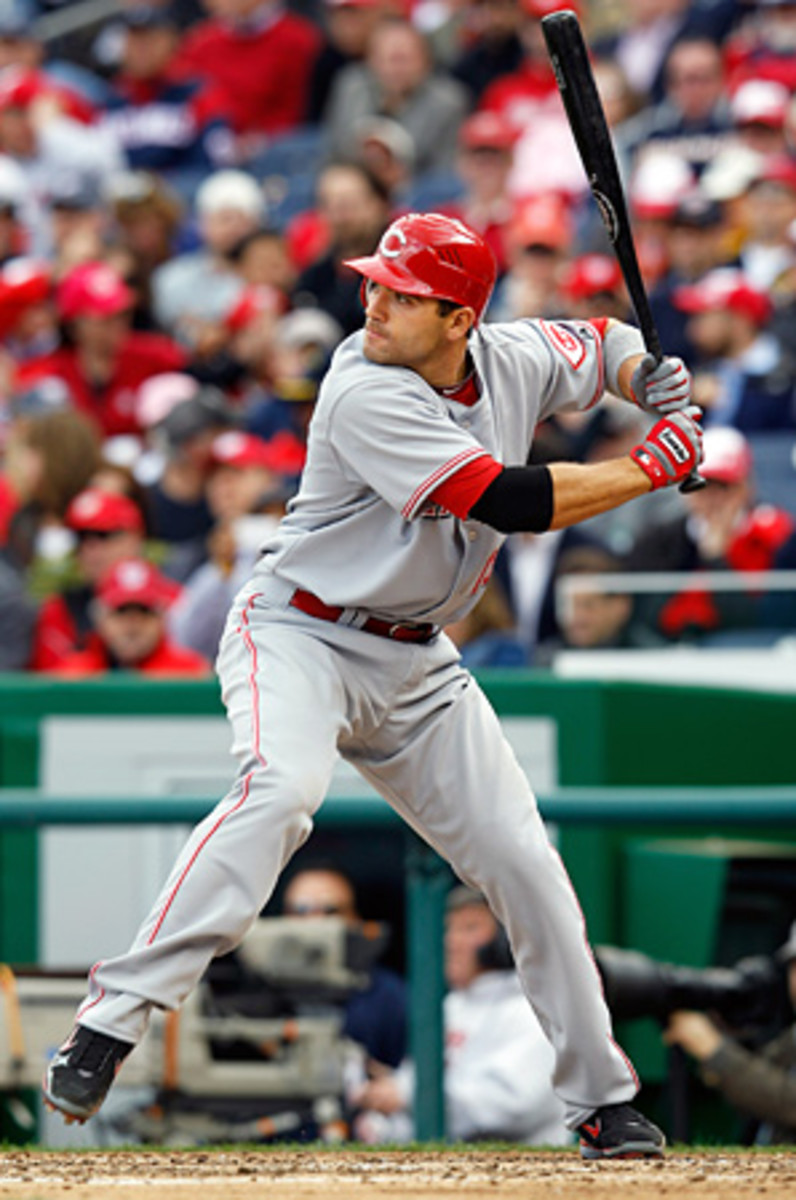Mega television deals are changing baseball's economic landscape
The general manager sits in his team's dugout before a game, talking about the gathering storm. "The divide is just going to grow even more," he says, of the widening gap between baseball's Haves and Have-Nots. The GM talks about the extraordinary money being thrown around in the game -- a franchise is sold for roughly the GDP of Guyana, a first baseman signs a $225 million extension with a team with the smallest TV market in the major leagues, a pitcher with 69 career wins signs a $127.5 million deal, the largest ever for a right-handed pitcher. The GM talks about how the new collective bargaining agreement and the overhaul of the draft system will kill low revenue teams like his, how TV money is changing everything, how the recent trend of staggering long-term contracts is leading to The End of Free Agency. Of the Joey Votto deal, he says, "That's going to crush us."
"The game's stacked against [low revenue clubs] like never before," he says. "And the competitive balance is just going to get worse going forward."
The economics of baseball are changing, dramatically, and it's time to throw out the traditional "big market" and "small market" labels. "It was once fairly easy to define who the games haves and have-nots were -- today, I'm not so sure," says Vince Gennaro, author of Diamond Dollars: The Economics of Winning in Baseball. "We used to define small market by the population base, the live gate, but now, the term small-market is a misnomer. You look at them as high revenue and low revenue teams through all sorts of structural factors, and one would be the agreements they are locked into."
Want to know how well positioned your team is going forward? Follow the money -- the TV money.
In the Age of the DVR, baseball programming has become more valuable to advertisers than ever. Baseball games, unlike episodes of Jersey Shore, must be watched live. "Baseball clubs are becoming benefactors of highly competitive broadcast market for local sports properties, because baseball is in a unique position with the kind of inventory they can provide a network with 162 games a year," says Gennaro. "Basketball can't do that. Hockey can't do that."
Texas and Anaheim became superpowers because of new TV deals. The Reds, whose market is roughly the size of Kansas City's, could extend Joey Votto because their new TV deal is double that of the Royals'. Houston, San Diego, Arizona and Detroit are about to become the game's nouveau riche with big, fat deals on the horizon, and the Mariners and Nationals are in play for new local TV contracts, too. "A lot of what's going on is feeling confidence that there are TV dollars in the offing," says Gennaro. "TV deals have a lot to do with the prices we're seeing in the free agent market."
Few people, though, seem to be talking about the teams being left behind.
These clubs -- the ones that locked into agreements before local TV deals skyrocketed --- are the game's new Have-Nots. Franchises once considered baseball royalty are tumbling into the middle class. Atlanta's outdated TV deal -- they're locked into a 25-year local contract -- will factor into whether the Braves can sign free-agency bound homegrown star Brian McCann, whose price rose higher with the Cardinals' recent signing of Yadier Molina to a five-year, $75 million deal. Asked in an interview with the Atlanta Journal Constitution if the team's TV contract will be a competitive disadvantage for the Braves going forward, team CEO Terry McGuirk said, "Let's just say it won't be an advantage." In Kansas City, the club's local TV contract -- they're locked up for less than $20 million over the next eight seasons -- is a big reason why it's a long-shot that the Royals will sign Eric Hosmer and Mike Moustakas to long-term deals before the young stars reach free agency.
"It just shows you how things are changing, to think a franchise like the Braves could be left in the background," says Gennaro.
"If you don't have that mega TV deal on the horizon, there's no doubt you'll be at a disadvantage," says the GM. "That's just the reality."
The GM isn't trying to make excuses. Everyone knows that low-revenue teams can win -- the Rays have proven that. It's just that it's about to become harder than ever for those teams to compete.
For the game's Have-Nots, both the old and the new, the storm is coming.






